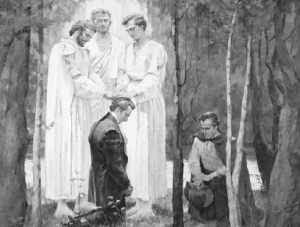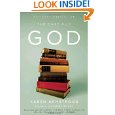 How many of you remember this post where I talked about “the problem of history“? In that post I gave a fake example of how in history, especially religious history, we often build informationless narrative fallacies that, due to the way human beings think, seem like rational arguments but in fact are not.
How many of you remember this post where I talked about “the problem of history“? In that post I gave a fake example of how in history, especially religious history, we often build informationless narrative fallacies that, due to the way human beings think, seem like rational arguments but in fact are not.
Now compare that to this post from John Nilsson back from my Mormon Matters days. I found it an interesting example of how difficult it is for us to remove our biases when dealing with religious history. (Or probably with any sort of history we care about.)
When I turned this rudimentary training [in history] on the sources describing the stories above [about angelic ordination of the priesthood], I found the records to be vague and contradictory, more so than in the case of Joseph’s different accounts of the First Vision. This is partly because Joseph had a co-participant, Oliver Cowdery, who left his own account of these experiences, and that many other early Church members wrote as if they did not hear of these ordinations until 1834 or 1835. Cowdery’s account is especially interesting, as he mentions only one occasion of priesthood bestowal, only one priesthood, only one angel visiting, and declines to name the angel as either John the Baptist or Peter, James, and John. (Note that the Church has added an “s” to “holy angel(s) in the link to the Oliver Cowdery account above to soften the ambiguity, under the guise of correcting “spelling, grammar, and punctuation”.


